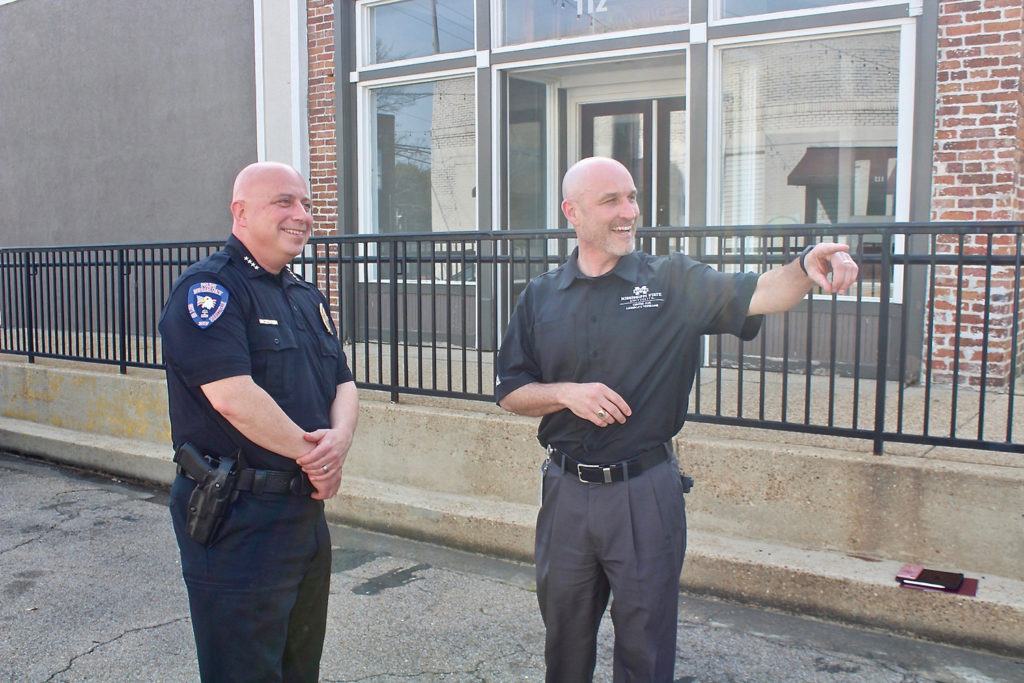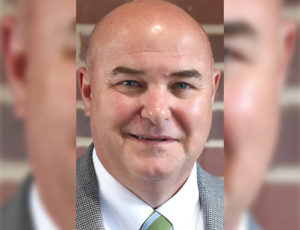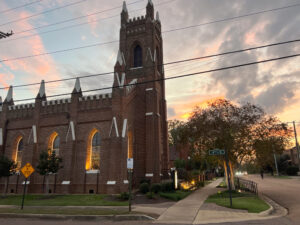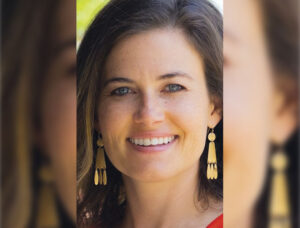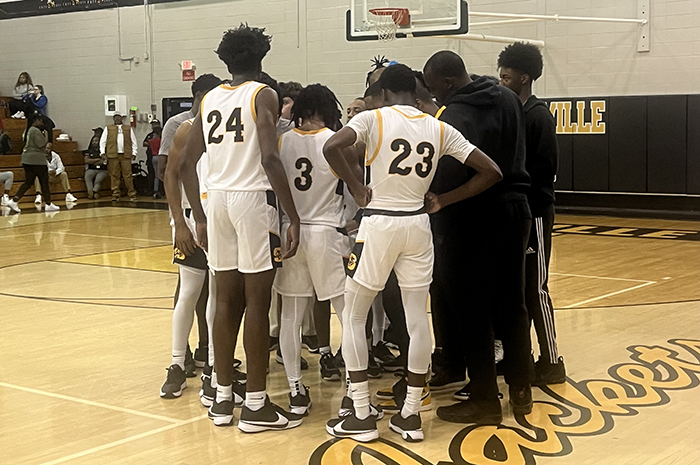STARKVILLE — As the lights faded from the bars and restaurants of the Cotton District on March 26, just like every weekend night, Capt. Brian Locke looked out at the empty streets, thankful for a rewarding and safe night.
He, along with other members of the reserve division of Starkville Police Department, not only ensured the safety of community members but chatted and interacted with the young adults who were out enjoying themselves for the night.
While Locke knows he could be spending these weekend nights at home or even out with his friends, he said there is nothing more fulfilling for him than being able to help out his town.
“We do this because we want to, not because we have to,” Locke said. “We just have this heart to serve.”
SPD created the reserve division in February 2020 to oversee special events and operations in Starkville. The board of aldermen approved Locke, who serves as Mississippi State University director of veterans and military affairs, as the captain for the division. Locke previously worked four years as the captain of the Columbus Reserve Division, taking what he learned from that position and applying it to his job here now.
The reserve division consists of eight sworn officers — the department is budgeted for 10 — most with extensive backgrounds in law enforcement, including working for the military, fire department, district attorney’s office or even the police department years prior. Locke said SPD created the division to alleviate some of the demands of everyday acting police officers.
“Our main focus is special events and how we can augment the SPD in terms of special events,” Locke said. “We just focus on trying to take the pressure off of the full time folks.”
Two weeks ago, the reserve division worked a food and clothing drive at J. L. King Park. The officers have worked MSU campus activities but also events in town, including Downtown Starkville Main Street Association events, Starkville High School football games and the Starkville Strong March. Managing crowd control and directing traffic, Locke said, are just a few of the tasks the division handles while working events.
While reserve officers do not work full-time, they have the same authority as regular officers and must undergo all of the regular training standards. Locke said some officers have special certifications to allow them to perform particular duties, such as bike patrol.
“All the training standards are exactly the same in terms of what a full-time officer has to go through,” Locke said. “All of my folks have been through some type of academy training. Most of them have been through a full-time academy.”
SPD Chief Mark Ballard said the reserve division saves costs, overtime and staffing. Before the development of the division, full-time officers were tired and overworked. Now they can focus more time into their personal lives, he said.
“There are a lot of special events going on, and law enforcement has to be present for those whether that is during the daytime or nighttime,” Ballard said. “This reserve division provides a stronger work-life, home-life balance for our regular forces. It’s able to assist us to be able to surge at peak times for management of crowds. They are vital to our department and our community.”
The creation of the reserve division was timely, Ballard added. A month after aldermen approved the division, the COVID-19 pandemic arrived in Starkville, resulting in canceled events and a temporary curfew which fell to SPD officers to enforce. After only being established for a month, the reserve division had to switch gears from patrolling special events to carrying out guidelines and procedures helping to prevent the spread of the virus.
Locke said these measures, such as curfews and checkpoints, required manpower and personnel.
“COVID accelerated the program,” Locke said. “I enjoyed the fact that we were needed so quickly, and we were able to provide a service during a time that the city really needed it and when the department needed the extra help. I think it greatly helped the community and Starkville Police Department.”
Commitment, Locke said, is an essential component of being a reserve officer. While most of the reserve officers have full-time jobs elsewhere, they still find the time to dedicate to the police department because they have the “passion” to serve Starkville. Reserve officers have served more than 1,000 hours since the creation of the division, with most averaging around 15 to 20 hours per month.
Ballard said the officers get paid around $25 an hour. While the division has a budget of its own, the funding for the officers’ salaries comes from grants and federal funds.
Locke and Ballard said they have big plans for the division’s future, including potentially creating a reserve police academy at SPD to further develop the division.
“We believe we have a product of instructors throughout this agency that are more than prepared to meet the state minimum requirements to start hosting a reserve police academy,” Ballard said. “In doing so, the benefit is those citizens that choose to serve, that want to serve their community, can do so by participating in the local academy here and meet that certification process, and that can carry over to becoming members of this department.”
Locke’s favorite part of the reserve division is getting to communicate and engage with Starkville residents. He said he believes the most important job the officers can do is to be a positive image of law enforcement by interacting with the public.
“These events are opportunities where we can be with the community that’s not enforcement actions,” Locke said. “It’s being able to interact with the community members. We just want to be able to show the community that we’re here to support them.”
You can help your community
Quality, in-depth journalism is essential to a healthy community. The Dispatch brings you the most complete reporting and insightful commentary in the Golden Triangle, but we need your help to continue our efforts. In the past week, our reporters have posted 46 articles to cdispatch.com. Please consider subscribing to our website for only $2.30 per week to help support local journalism and our community.

